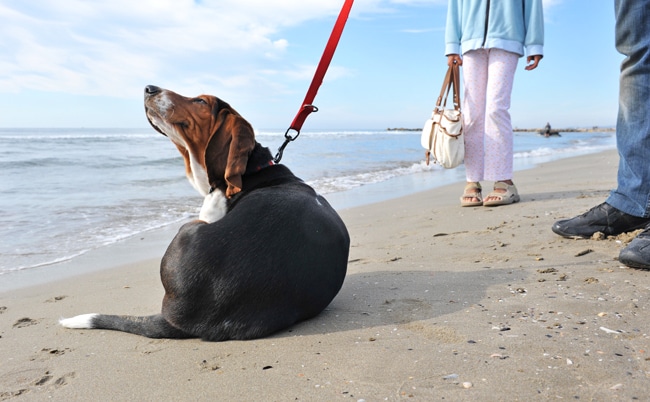Blog Causes & Treatment for Dog Hot Spots
Hotspots are medically known, as Acute Moist Dermatitis is a painful swollen patch of skin that is raw, exudes pus and may give off a foul odor. Hotspots are usually caused by excessive licking, chewing or scratching causing a wet patch of scab to form on the skin. They can appear almost instantaneously and anywhere on the body.
Hotspots are very uncomfortable and can be caused a variety of issues, including:
Fleas, Ticks and Other Parasites or Bites
Skin parasites are the leading case of hot spots and will irritate your dog’s skin leading to excessive scratching and licking which encourages the infection. Grooming your pet regularly and maintaining a strict flea and tick preventative program can help eliminate the potential exposure to hot spots.
Too Much Exposure to Water Without Proper Drying
Swimming too much can encourage hot spots to form on your dog. If your dog swims with you at the beach and the pool then be sure to dry them appropriately as well as maintain their coasts regular grooming. Longer haired breeds are often more susceptible to hotspots due to moister and bacteria trapped between the skin and the hair. If your dog loves to swim, consider keeping their coat short or shaved. (link to VIP grooming page)
Skin Allergies
If your dog is frequent sufferer of hotspots, he/she may have skin allergies. The most common form, Atopic Dermatitis, is caused by pollen, dust, and mold. Other causes of skin allergies are from their diet, medications, or skin products.
Stress
Stress plays an important role in a dog’s life. Stress is known to be a factor in hot spots. Poor grooming, dehydration, lack of exercise and environmental changes can all lead to stress for your dog. When a dog is stressed they have the tendency to lick and scratch excessively to calm themselves down which can lead to hot spots.
Treatments for hotspots are quite simple, the area around the hotspot is shaved to allow maximum airflow to the skin, which will dry out the moisture and help speed recovery. Wash the hotspot area with a mild astringent or antiseptic spray or surgical wash and pat it dry. Contact your veterinarian who may recommend oral antibiotics, a hydrocortisone ointment or other spray to be applied to the affected areas. Depending on the location of the hotspot, you may need to use an E-collar for a few days to stop your dog from licking and ensure a speedy recovery.

